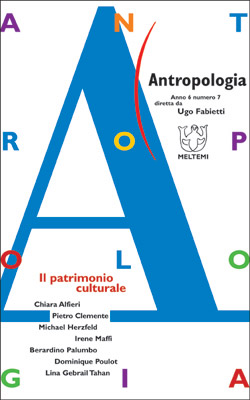Antropologi tra museo e patrimonio
DOI:
https://doi.org/10.14672/ada2006143%25pParole chiave:
Musei demoetnoantropologici, Patrimonio culturale, Iperluoghi, Museo, PatrimonializzazioneAbstract
Questo contributo esplora il ruolo dei musei antropologici, in particolare delle istituzioni demo-etno-antropologiche, nella società contemporanea. Il testo analizza come questi musei fungano da “iperluoghi” che incarnano funzioni sia di nicchia che di arena, influenzando le interazioni locali e globali, il turismo sostenibile e la conservazione delle esperienze storiche. Il testo esamina lo spostamento della percezione dei musei da depositi statici a spazi dinamici di connettività culturale e impegno sociale. Evidenzia il contrasto tra l'approccio francese, che enfatizza la memoria sociale rispetto agli artefatti tangibili, e l'attenzione italiana al patrimonio fisico e incarnato. Lo studio sottolinea il ruolo del museo come funzione connettiva che collega vari elementi della società, dai vivi ai morti, dalle esperienze passate a quelle future. Discute inoltre le sfide e le potenzialità del campo dell'antropologia museale, sostenendo una prospettiva che vede i musei come risorse attive per la crescita culturale e lo sviluppo
##submission.downloads##
Pubblicato
Fascicolo
Sezione
Licenza
Copyright (c) 2013 Pietro Clemente

TQuesto lavoro è fornito con la licenza Creative Commons Attribuzione 4.0 Internazionale.
- Gli autori mantengono i diritti sulla loro opera e cedono alla rivista il diritto di prima pubblicazione dell'opera, licenziata sotto una Licenza Creative Commons - Attribuzione che permette ad altri di condividere l'opera indicando la paternità intellettuale e la prima pubblicazione su questa rivista.
- Gli autori possono aderire ad altri accordi di licenza non esclusiva per la distribuzione della versione dell'opera pubblicata (es. depositarla in un archivio istituzionale o pubblicarla in una monografia), a patto di indicare che la prima pubblicazione è avvenuta su questa rivista.




